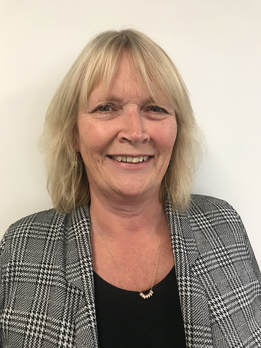Economic innovation in Whanganui
|
Six months ago, Whanganui & Partners, Whanganui District Council’s economic development organisation moved into the Innovation Quarter, a co-working space in St Hill Street, Whanganui.
They were joined by Te Manu Atatu (Whanganui Māori Business Network) and the Chamber of Commerce and Industry, who are also driving economic development in the district. Philippa Ivory, General Manager of Whanganui & Partners, says working with similar organisations has been a contributor to the success of the Innovation Quarter (IQ). “Each of the organisations working at IQ has differing aims and stakeholders, however it’s really helpful to be in the same location. To be able to sit and chat informally is very valuable,” Ms Ivory says. |
Ms Ivory says being close to the Council’s main building, but seen as a separate agency where people can discuss their business ideas, has been a bonus.
The Whanganui & Partners team comprises people working in business development, education and tourism at a strategic level.
Ms Ivory says that one of the challenges is to manage expectations and help people understand that the organisation is a facilitator of economic development and there to help people with their ideas, not to develop business plans.
“On a daily basis, we are identifying projects and activities that could make a genuine difference. As our focus is strategic, we have to assess these projects and activities to ensure they will benefit the district. We are trying to lead, facilitate and drive growth and retention. Managing expectations of what we can achieve is important. For example, I will talk to people about how to put together a sponsorship proposal, but I am not writing the proposal for them.
“People may look to us as subject experts and expect us to do the work. Unfortunately we don’t have the capacity to. We are here to inform and advise rather than actively manage. For the Whanganui community to see the value in this, we have to deliver a return on their investment.”
“We’ve got people coming in saying ‘I’ve got jobs I can’t fill’ and we’ve got people saying ‘we’ve got skills and we don’t know where to work’, so we’ve been connecting people and organisations. Because if people don’t have jobs, they will leave Whanganui.”
One way Ms Ivory says she hopes to make a difference is to work on freeing up land for development.
“Whanganui & Partners and the Council team, through our business friendly group, is working continuously to identify land owners and landlords with capacity and connect them to potential business owners and those looking to expand.”
Ms Ivory and her team are also developing resources for people interested in starting a business or relocating to Whanganui and have worked with local designers, videographers and signwriters.
“We are developing what we call a ‘tap and go’ pack. It includes information about the Council’s business friendly group and how the Council can help with compliance, as well as population makeup and infometrics to help someone see the benefits of doing business in Whanganui.”
She says the team is also working on a campaign about “all the things you can do in Whanganui with the spare money and spare time you will have once you arrive here.”
“It’s designed to share the benefits of the district, with information about everything from our great schools and shopping to the fantastic weather and activities you can enjoy when you’re not commuting.”
Working regionally is also important and the Whanganui & Partners team work closely with economic development agencies from around the Manawatū-Whanganui region.
“We are definitely trying to build partnerships between Taranaki, Whanganui, Manawatū and possibly all the way to Wellington so people come down this side of the coast in their campervans. There are lots of benefits to that because people who come and visit often decide to move here. All of them will hopefully spend money here and that’s all beneficial.
“There’s a positive wish for success in our district and region. Everybody wants to work together. Everyone I’ve met is living in Whanganui because they want to be here and they want it to succeed. And that’s nine tenths of the battle.”




